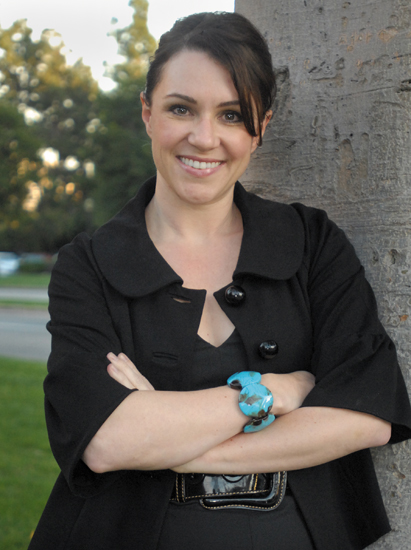Until Angela Riley’s op-ed article was published in The New York Times, few of her friends knew the Quileute tribe depicted in Stephanie Meyer’s best-selling romance series, “Twilight,” even existed.
Riley, the acting associate director of the UCLA American Indian Studies Center, said she started reading the series before it had even become popular, after a friend recommended it. She said she was intrigued by the inclusion of the Quileute tribe, which is depicted as a group with members that can transform into werewolves.
As the series increased in popularity, she started to receive calls from members of the Quileute tribe who sought her expertise on the subject of indigenous intellectual property rights. The tribe found the invasion of their cemeteries and trespassing on reservation by Twilight fans troubling. Furthermore, there is an absence of laws that protect them from hoodies and charm bracelets marketed as Quileute but have no connection to the actual tribe.
The subject touched Riley, who teaches full-time at the UCLA Law School while aiding with tribal court work. In addition to these duties, she also coordinates events for the UCLA Ethnic Studies Center and serves as a conference chair for the Federal Bar Association’s Indian Law Conference which will take place in April.
Riley, who is half Potawatomie, grew up in an Oklahoma county with a large Native American population. In this area, she said many Native Americans were struggling financially, and the racial dynamics between whites and Indians were tense.
She added that many whites felt resentment toward the Native Americans for receiving benefits they felt they did not deserve, like tribal autonomy and health benefits, and would make racially hostile comments.
The combination of her life experiences and the acknowledgment that this form of racism was not confined to her own community influenced Riley’s decision to go to law school.
It was there that she wrote her first paper on a case involving the Ami indigenous tribe in Taiwan, which claimed that the theme song for the 1996 Olympics violated their intellectual property, further exposing her to the issue of Indian rights.
So when the Quileute called for her help, she agreed to put her expertise to work, serving as an informal adviser to the tribe and recommending contacts for them to receive legal assistance.
Many of Riley’s colleagues said she is an asset to her field.
“I’ve worked with her on a couple of projects, and she’s incredibly organized and pleasant to work with,” said David Delgado Shorter, an associate professor of world arts and culture. “She’s very smart and will do much for the American Indian
Studies Center. I believe from what I’ve seen so far, she does her work in a respectful and right way.”
He said Riley presented Anthony Morales, an Indian chief, with a basket from the California Indian Basketweavers Association during a symposium on international human rights. Shorter said it displayed Riley’s ability to maintain good relations with the Native American community.
Colleague Carole Goldberg spoke of Riley’s dedication to students.
She said that Riley spent a lot of time and effort preparing moot court competitions for the National Native American Law Students Association.
She also said Riley is highly regarded in her Oklahoma tribal community as someone who has accomplished much at such a young age.
Riley said the best part of her job is that it has real purpose and utilizes her ability to be a mentor and inspiration to both native and non-native students both inside and outside of law. She said her goal is to roll the ball forward for indigenous people’s rights.
